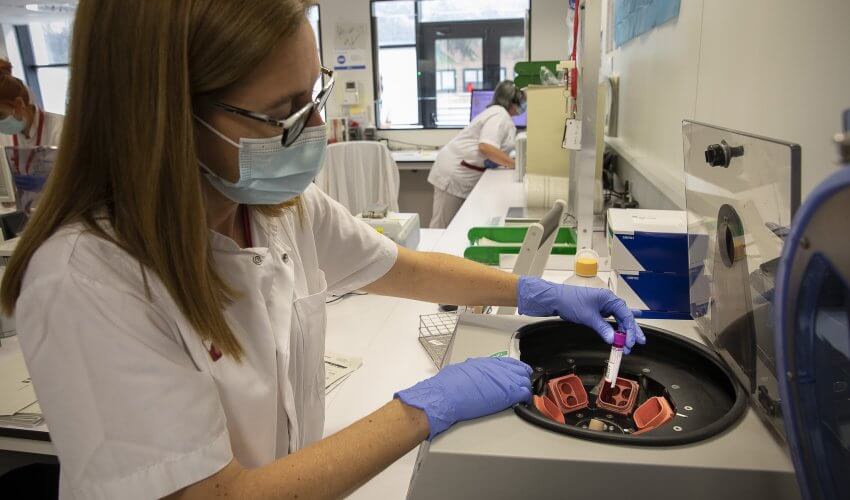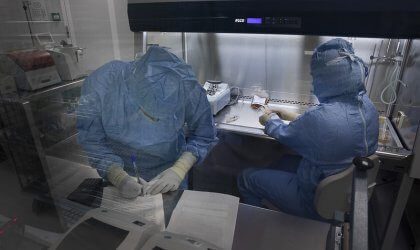Blood and Tissue Bank discovers what could be a new rare blood group

A study of a premature baby has led to the discovery of a never-before-seen antigen. This is the first time a laboratory in Spain has identified and described a new blood group.
Blood groups are determined by antigens, also known as proteins, on the surface of red blood cells. We do not all have the same antigens, and this is what makes us compatible with one blood group or another. These differences are partly due to people’s different geographical origins.
At present, this blood group is considered rare, as only three people from the newborn’s family nucleus have been matched. Because this is such a recent finding, the geographical range of this antigen and the number of people in the world who have it is not yet known. For now, this Andalusian family is the only one in the world known to have the protein.
To underline the exceptional nature of the discovery, the international commission of experts known as Red Cell Immunogenetics and Blood Group Terminology has verified the antigen and named it SHER, after the region where the family originates (Jerez de la Frontera).
Exceptional blood groups around the world
If a person has antibodies because their immune system has reacted to a rare antigen, in this case SHER, it is not difficult to find compatible blood if they need a transfusion.
However, people who do not have an antigen, which the majority of people do, have to find a donor who is as exceptional as they are when they need blood. Their blood is incompatible with that of most donors.
In order to meet this need, there is an international network of centres specialising in exceptional blood, which includes Catalonia’s Banc de Sang i Teixits (Blood and Tissue Bank). Worldwide, there are around 60 centres in 26 different countries that are ready to help each other.
For more information, visit the website donarsang.gencat.cat/sangexcepcional



